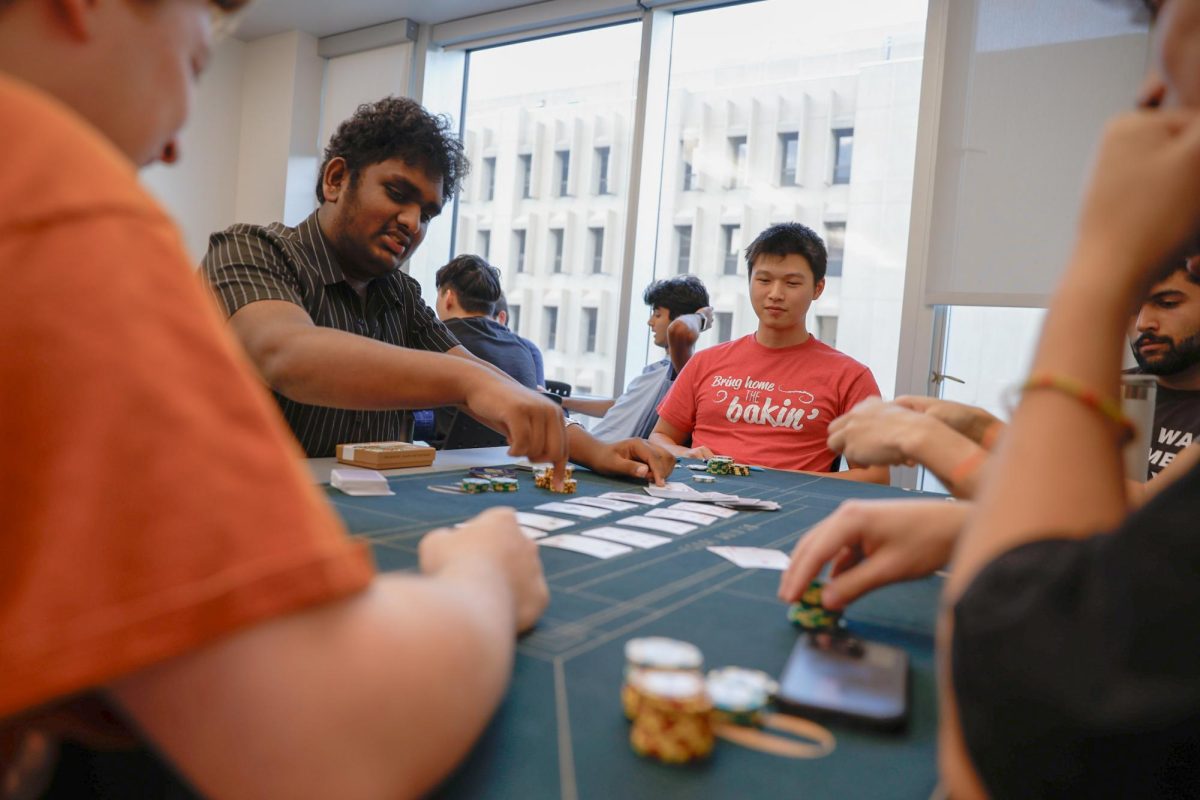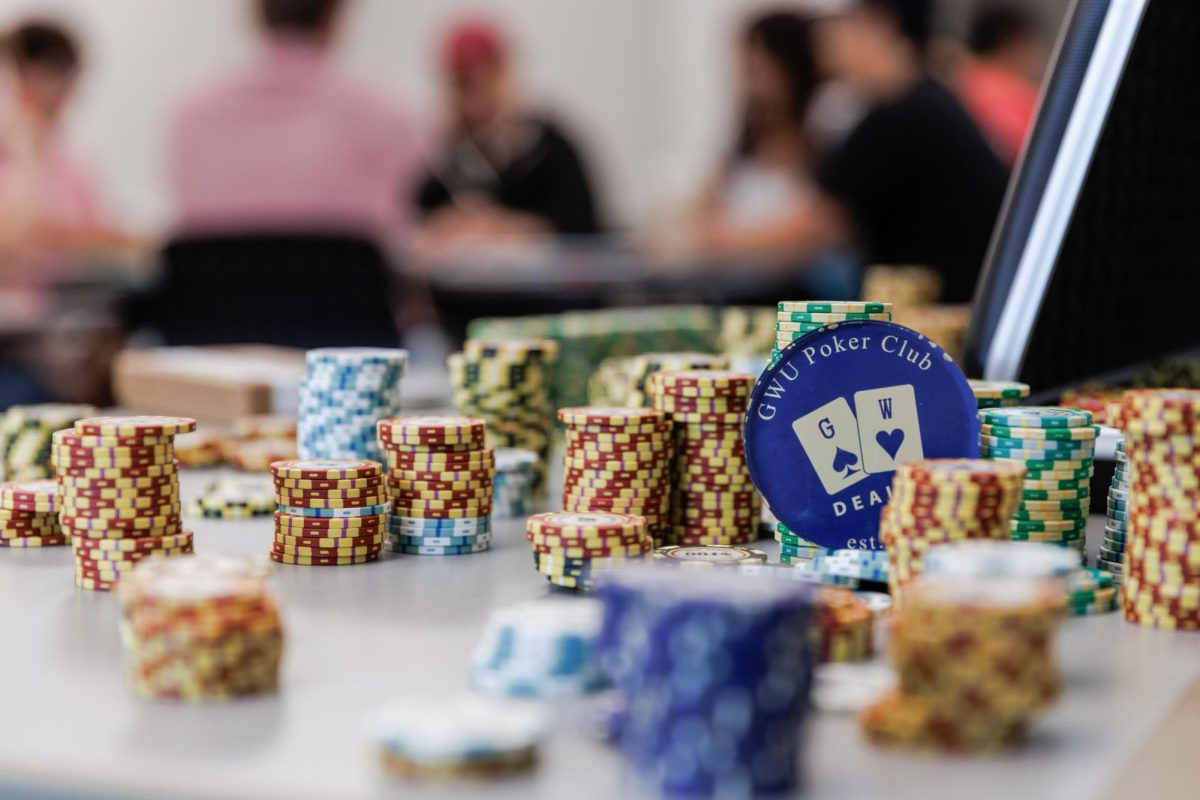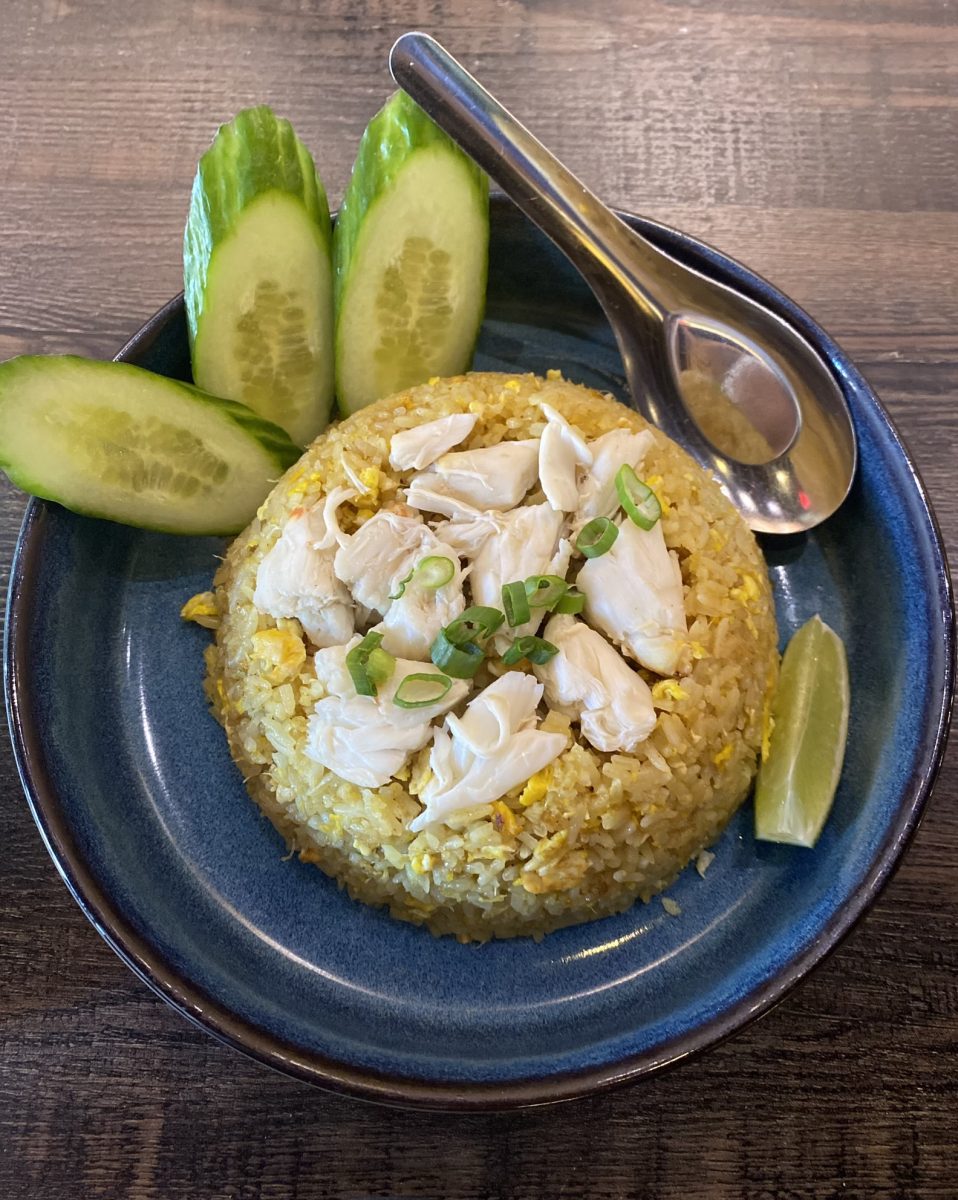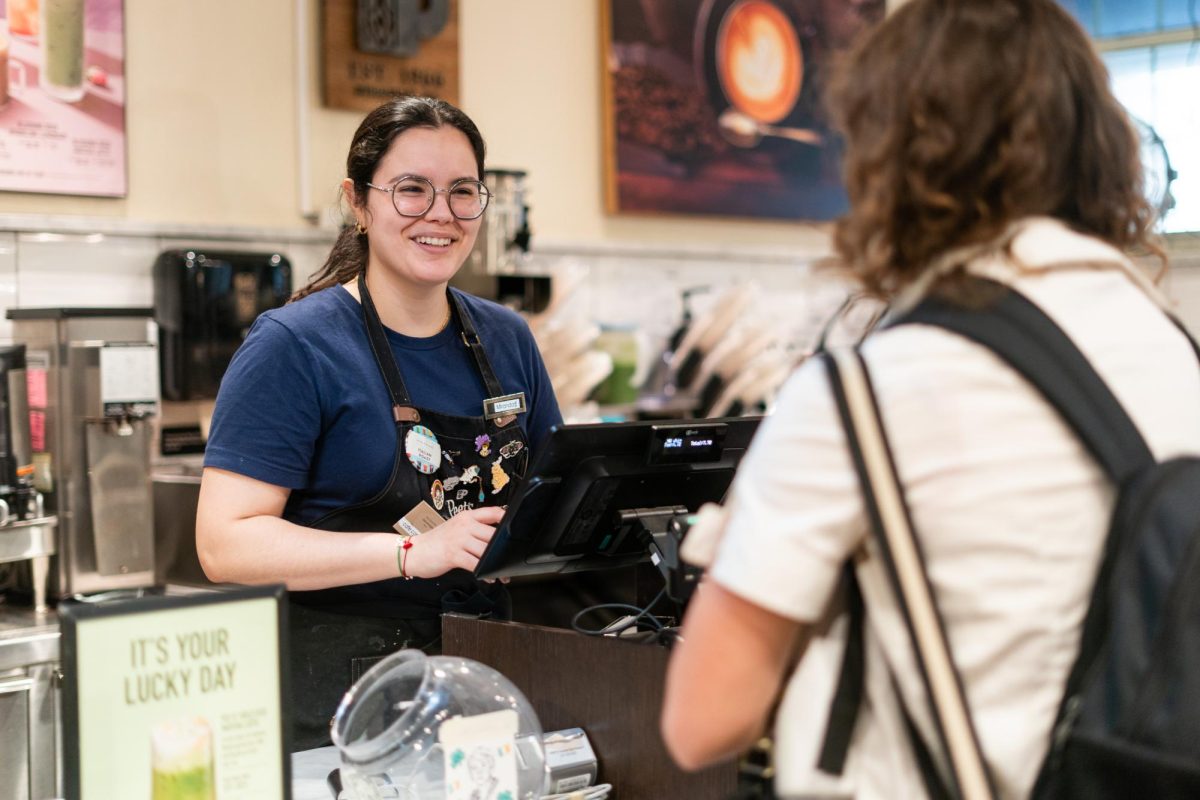Students meticulously count and stack multicolored poker chips, shuffle cards emblazoned with violet diamonds and hit play on a playlist titled “Amigos and Cards.” Elton John began to croon “Bennie and the Jets” followed by Kanye West’s “Gold Digger.” In other words, the GWU Poker Club was ready to start its weekly meeting.
About 15 newcomers and returning members trickled into a Duquès Hall classroom on Friday evening, eager attendees pushing tables together to create setups for five poker games. Players bought in by picking up $750 worth of chips in fake money, and Poker Club veterans and executive board members acted as dealers, laying out blue poker mats with spots designated for six players’ chips and cards at each table.
Members of the GWU Poker Club have been playing the game for years and competing against each other each week since the organization’s founding in 2021.
“Learning to play poker has helped me do things outside of poker,” GWU Poker Club President Camil Walkiewicz-Yvon said. “In my life, it’s made me a better worker at my job and made me better at school and all of that because it requires mental fortitude and also the ability to make decisions under some level of pressure.”
Classically the domain of chain-smoking gamblers and more anodyne card lovers alike, poker requires players to win hands with the best set of five cards. Each round, players use chips to bet a particular wager based on how confident they are in their cards — or how confident they are in their ability to bluff and make everyone believe they have a good hand.
On Friday, as dealers began to deal cards, some members’ hands trembled as beads of sweat formed on their foreheads under the bright florescent lights. Other competitors had cooler heads — one saying “I have the nuts” right before the game began.
One member was enthused about his hand, flashing his ace-in-the-hole with a thumbs up to a Hatchet reporter on scene. The game began with casual chitchat, but with each new wager, the room quieted as players’ focus intensified under the fluorescent lights.
Walkiewicz-Yvon, a junior majoring in biomedical engineering, said he has been playing poker variations Texas hold ‘em and Omaha for six years and went all-in on GWU Poker Club, now spending his fourth semester in the student organization and first as president.
The group meets on Friday nights from 5:30 to 11 p.m. and players can stay for as long as they want, Walkiewicz-Yvon said. He said the club is beginner-friendly and plans to tutor aspiring card sharks with introductory poker information sessions later this month.
He said the organization uses fake money to control the leaderboard and players’ semesterly earnings using a spreadsheet that tracks their total “bankroll” winnings, the number of sessions they have played and their winnings per evening of poker, which they post on Instagram on a weekly basis for 12 weeks.
At the end of the semester, he said the winner receives prizes like commemorative buttons, decks of cards or poker chips, funded through cosponsorship requests.
“GW Poker Club doesn’t endorse gambling, which seems like a really weird statement to make, because we are a poker club,” said Walkiewicz-Yvon. “But the game is, for us at the club, it’s all about the social aspect and playing competitively with your friends, and it’s not about the money.”
The GW student organization handbook states that organizations may not use funds from GW on purchases related to gambling.

GWU Poker Club Co-Vice President Varun Kandarpa, a sophomore majoring in international business and finance, said during his second or third time at a poker night last year, he was a fish in a pool of sharks — sitting at one of several tables with all upperclassmen and organization executive board members.
But Kandarpa had a “cooler,” a situation in which your poker opponent may have a great hand, but your cards are even better. After his full house took home the table’s fictional winnings, he worried he may have ruined all his relationships in the group one hand in.
“I thought they were just gonna be super mad at me, because I’ve met poker players who get really angry if you kind of beat them, and they were just trying to be super chill about it,” Kandarpa said.
Poker is the most played “social game” in the country, but many people don’t know the difference between a two-pair and a royal flush, Kandarpa said. He attempts to rectify players’ lack of poker literacy by teaching — and defeating — opponents at meetings in a more welcoming environment than the backrooms of Atlantic City.
He advertised the group at the Orientation Week organization fair with the slogan “If you don’t know how to play poker, we’ll teach you, and if you do, we’ll beat you.”
“It’s just such a shame for people who don’t necessarily know how to play the game because sometimes the culture can be very closed off or against new players,” he said. “Because people are trying to take money from those new players, so it kind of closes them off from that culture.”
Senior Joao Cardoso, one of the five-pair of Poker Club’s vice presidents, said members announce the group’s weekly meetings on Instagram with posts of the fabled inventor of poker, John Poker. Cardoso said the pictures posted are actually a Brazilian man named Alberto Santos-Dumont, who played a large role in developing the airplane, but Cardoso labeled him “John Poker” because he thought he looked like “a really old-timey fellow.”
Cardoso said members claimed in another post that John Poker invented Texas hold ‘em when he was in the Union Army during the Civil War and fought in Texas. Santos-Dumont was born in 1873, eight years after the Civil War ended.
“The lore has really evolved,” Cardoso said.
Senior Tyler Alexander, a political communication student and another organization vice president, said his favorite matchup was not one he played in, but instead one he anxiously watched in fall 2021, his first year as a member. He said the tension was “incredible” among the six players as they remained laser-focused on winning each hand as someone recorded the event in the background.
“You could have heard a pin drop on a carpeted floor,” Alexander said. “It was silent.”
Since Alexander joined the club, he and his fellow rounders have had the success of a royal flush as the organization has grown, with 71 players attending the meeting before Friday’s.
“I think poker club’s star is rising,” Alexander said.




